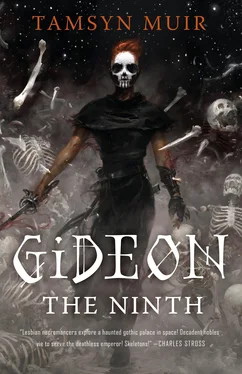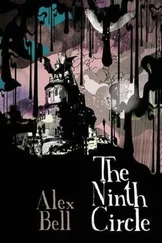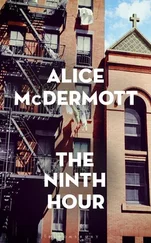Gideon cupped her hands over her eyes to shade them and looked again, getting her fill of the explosive brilliance outside: the velvety blackness of space, with innumerable pinprick white stars; the First, a searing circle of incandescent blue, strewn with dazzling white; and—the outsides of seven more shuttles, lining up in orbit. Gideon gave a low whistle to see them. To an inhabitant of the sepulchrous Ninth House it seemed amazing that the whole thing didn’t just combust and crumble into flame. There were other Houses that made their homelands on planets closer to the burning star of Dominicus—the Seventh and the Sixth, for instance—but to Gideon they could not imaginably be anything else than 100 percent on fire.
It was incredible. It was exquisite. She wanted to throw up. It seemed stolid insanity that Harrowhark’s only reaction was to slide up the plexiform barrier and hold down the communication button to ask: “How long must we wait?”
The navigator’s voice crackled back: “We are securing your clearance to land, Your Grace.”
Harrow didn’t thank him. “How long?”
“They are scanning your craft now, Your Grace, and we’ll move the moment they have confirmed you’re free to leave orbit.”
The Reverend Daughter sank back into her chair, stuffing her prayer bones into a fold of her robe. Quite unwillingly Gideon caught her eye. The expression on the other girl’s face wasn’t disinterest or distraction, as she’d assumed; even through a layer of veiling, she could tell that Harrow was near-incapacitated with concentration. Her mouth was pinched in a tight ripple, worrying the black-painted blotch on the lower lip into blood.
It took less than five minutes for the thrusters to creak to life again, for the ship to slowly glide out of orbit. Next to them, in a line, seven other shuttles were drifting to one side, sliding into the atmosphere like dominoes falling. Harrow shook her head back into her hood and pinched the bridge of her nose, and said in tones between pleasure and pain: “This planet’s unbelievable. ”
“It’s gorgeous.”
“It’s a grave,” said Harrowhark.
The shuttle broke orbit, haloed by coruscating light. This burn-off meant there was nothing to see but sky, but the sky of the First House was the same improbable, ludicrous blue as the water. Being on the outside of the planet was like living in a kaleidoscope. It was a lurching blur for long moments—a whine, as air pockets in the thick atmosphere made the engines scream, a jolt as the craft repressurized to match—and then the shuttle was a slingshot bullet, an accelerating shell. The brightness was too much to bear. Gideon got the impression of a hundred spires rising, choked with green stuff from blue-and-turquoise waters, before she had to squeeze her eyes shut and turn away wholesale. She pressed the fabric of the embroidered Ninth robes to her face and had to breathe through her nose.
“Idiot.” Harrowhark’s voice was distant and full of badly suppressed adrenaline. “Here. Take this veil.”
Gideon kept mopping at her eyes. “I’m all good.”
“I said put it on. I’m not having you struck blind when the door opens.”
“I came prepared, my sweet.”
“What are you even saying half the time—”
The glow changed, strobing, and now the shuttle was slowing down. The light cleared, brightened, dazzled. Harrowhark threw herself upon the shutter and slammed it down; she and Gideon stood in the centre of the passenger bay, staring at each other. Gideon realised that Harrow was trembling; little licks of hole-black hair were pasted to her pale grey forehead with sweat, threatening to dissolve the paint. Gideon realised with a start that she was trembling and sweating in concert. They looked at each other with a wild surmise, and then started dabbing at their faces with the insides of their sleeves.
“Hood up,” breathed Harrowhark, “hide that ridiculous hair.”
“Your dead mummified mother’s got ridiculous hair.”
“Griddle, we’re within the planet’s halo now, and I will delight in violence.”
A final, thuddering clunk. Complete stillness. The seals on the outside were unlatched by some outside force, and as light blazed around the edges of the hatch, Gideon winked at her increasingly agitated companion. She said, sotto voce: “But then you couldn’t have admired … these,” and whipped on the glasses she’d unearthed back home. They were ancient smoked-glass sunglasses, with thin black frames and big mirrored lenses, and they greyed out Harrow’s expression of incredulous horror as she adjusted them on her nose. That was the last thing she saw before the light got in.
And then the outside of the First House was open to them, a rush of warm air ruffling their robes and drying the sweat on their faces. Before the hatch had even shuddered to a halt, Harrow, aggravated, had disappeared completely: Lady Harrowhark Nonagesimus, the Reverend Daughter of the House of the Ninth, swept onto the docking ramp instead. Counting five full breaths to mark time, Gideon Nav, Cavalier of the Ninth House, came following behind, praying that her unfamiliar sword wouldn’t tangle in her robes.
They were on the enormous, metal-plated dock of what must have surely been the most impressive structure the First House had ever built. It might have been the most impressive structure anyone had ever built. Gideon didn’t have a lot to go on. Rearing up before them was a palace, a fortress, of white and shining stone. It spread out on the surface of the water like an island. You couldn’t see over it and you could hardly see around it. It lapped back in terraces of what must have once been fabulous gardens. It rose up in gracious towers that hurt the eye with their slenderness and precision. It was a monument to wealth and beauty.
Back in its day, at least, it would have been a monument to wealth and beauty. In the present it was a castle that had been killed. Many of its white and shining towers had crumbled and fallen down in miserable chunks. Jungling overgrowth rose from the sea and wrapped around the base of the building, both green slimes and thick vines. The gardens were grey, filmy canopies of dead trees and plants. They had overtaken the windows, the balconies, the balustrades, and clung there and died; they covered much of the frontage in a secretive mist of expired matter. Gold veins shone dully in the dirty white walls. The docking bay must have also been elegant in its era, a huge landing swath that could have held a hundred ships at a time; now ninety-two of the cradles were desolate and filthy. The metal was caked with salt from the water, salt that now assaulted Gideon’s nose: a thick, briny scent, overpowering and wild. The whole place had the look of a picked-at body. But hot damn! What a beautiful corpse.
The dock was alive with movement. Five other ships had landed and were expelling their contents. But there was no time for that: someone had come to meet them.
Harrowhark did not care for any herald. She had drifted out like a black ship in sail, a bony figure wreathed in layers and layers of night-coloured cloth with a lace overcloak trailing behind her; adorned with bones, painted like a dead woman, eyes blindfolded with black net. Now she dropped to her knees five paces from the shuttle door and began counting prayers on the knuckle beads in a click-clack monotone. Showtime. Gideon ambled over and knelt next to Harrow on the sun-warmed metal of the dock, her own robes pooling black around her, staring inscrutably at the tint-dimmed chaos of what was going on. The clacking beads made her almost feel normal.
“Hail to the Lady of the Ninth House,” warbled a voice delightedly, bringing the count of people who had ever been happy to see Harrow up to three. “Hail to her cavalier. Oh, hail, hail! Hail to the child of the far-off and shadowed jewel of our Empire! What a very—happy—day.”
Читать дальше











